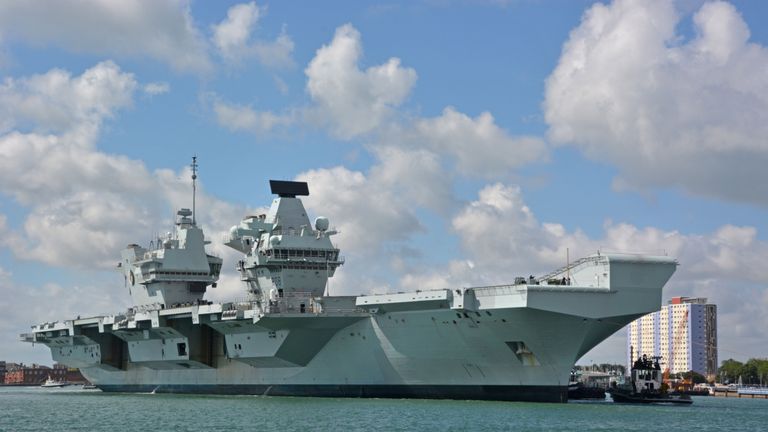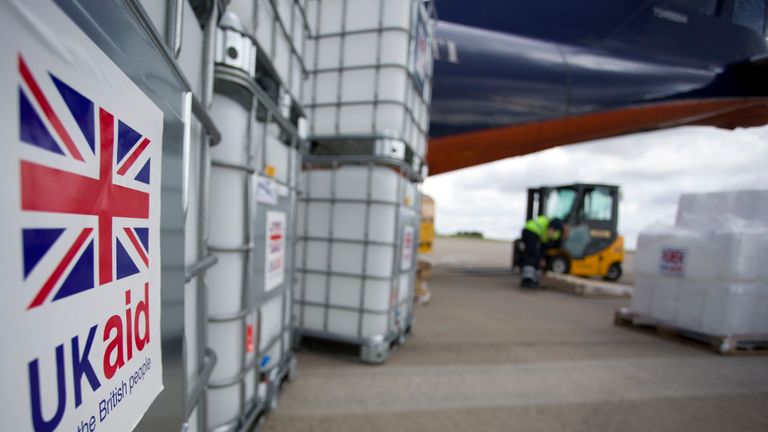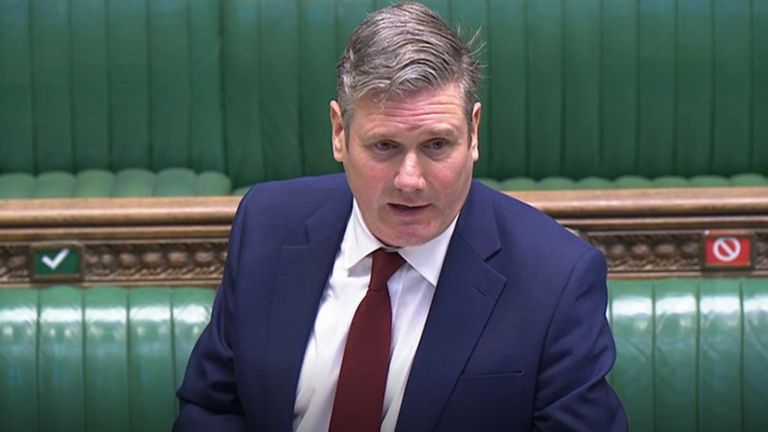Boris Johnson has vowed to “restore Britain’s position as the foremost naval power in Europe” as part of a multi-billion pound boost to defence spending.
The prime minister, speaking as he set out a new multi-year funding package to the House of Commons, warned the “international situation is now more perilous and intensely competitive than at any time since the Cold War”.
Mr Johnson has promised to invest an extra £16.5bn in defence spending over the next four years.
This is on top of the Conservatives’ manifesto commitment to increase the defence budget by at least 0.5% above inflation every year.
The prime minister said, in total, this would add up to a £24.1bn increase in defence spending over the next four years.
Downing Street has hailed the biggest programme of investment in British defence since the end of the Cold War, which it said will also see the creation of 40,000 jobs.
Mr Johnson told MPs that the UK’s defence budget had been “trimmed and cheese-pared” for decades and that he had “decided that the era of cutting our defence budget must end, and it ends now”.
“Our national security in 20 years’ time will depend on decisions we take today,” the prime minister told the Commons via videolink, as he continues to self-isolate in Downing Street.
“I have done this in the teeth of the pandemic, amid every other demand on our resources, because the defence of the realm and the safety of the British people, must come first.”
With perhaps an eye on his future relationship with US president-elect Joe Biden, the prime minister hailed how the UK would now be investing more than any other European country in defence projects and more than any other NATO ally, other than America.
Outlining how the new money will be spent, the prime minister claimed the cash would help “spur a renaissance of British shipbuilding across the UK – in Glasgow and Rosyth, Belfast, Appledore and Birkenhead”.
Making his promise to “restore Britain’s position as the foremost naval power in Europe”, he added: “If there was one policy which strengthens the UK in every possible sense, it is building more ships for the Royal Navy.”
He said the government would seek to “develop the next generation of warships, including multi-role research vessels and Type 32 frigates”.
Mr Johnson also outlined plans to focus the expanded defence budget on “technologies that will revolutionise warfare”, such as “directed energy weapons” that employ “inexhaustible lasers”.
He told MPs of a £1.5bn investment in military research and development, a new centre dedicated to Artificial Intelligence and a new RAF Space Command that will launch British satellites and “our first rocket from Scotland in 2022”.
The prime minister also confirmed the establishment of a National Cyber Force, which is already operating over computer networks against terrorism, organised crime and hostile states.
Labour leader Sir Keir Starmer claimed the government had made the spending announcement – which comes before the publication of a review of the UK’s foreign, defence, development and security policy early next year – without a “clear strategy or a coherent vision for Britain in the world”.
“I know the prime minister is always keen to talk about the bits of government he enjoys – big announcements, space programmes, moonshots,” he said.
“But this statement shows the government still lacks a clear strategy or a coherent vision for Britain in the world, or any idea how the promises the prime minister makes will actually be delivered.”
Sir Keir also questioned how the increased defence spending will be paid for, asking whether it would be funded by extra borrowing, tax rises or a squeeze on other government departments.
The prime minister came under pressure from Conservative ex-cabinet ministers Andrew Mitchell and Jeremy Hunt to resist cutting the UK’s foreign aid spending in order to help pay for the new defence commitments.
It has been reported the government could temporarily cut the UK’s foreign aid spending target from 0.7% to 0.5% of gross national income, following the huge outlay to deal with the coronavirus pandemic.
Mr Johnson said the UK could be proud of its record on overseas aid and would “continue to lead the world”.
“This statement is about our defence and security, and there is no read across to any other issue,” he added.



